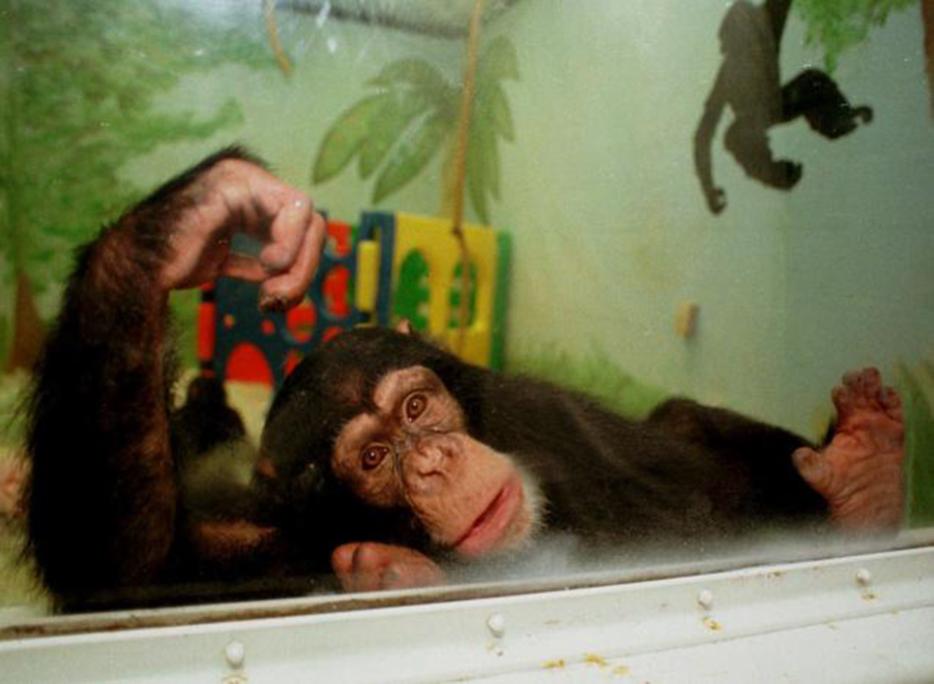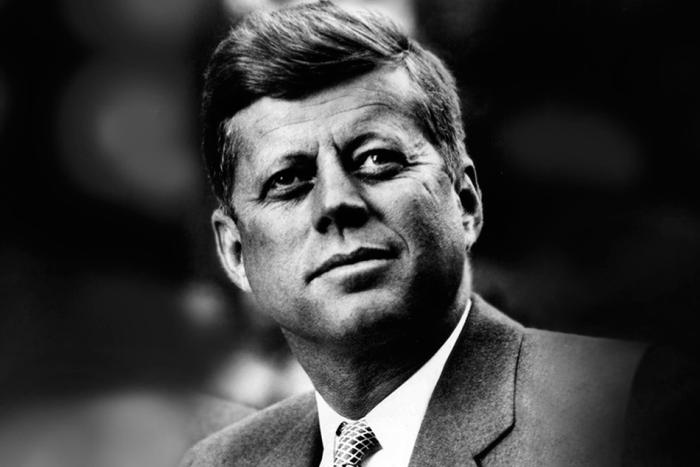On the evening of March 15, 1983, the celebrated Hungarian-Canadian endocrinologist Hans Selye was reincarnated in Montreal as a young chimpanzee. To be reborn an ape is ordinarily no more remarkable than finding oneself a hedgehog or tsetse fly, but fate had seen fit to reincarnate Hans Selye as a very particular chimpanzee—one in the care of his wife, Lena. Or rather, until his rebirth it was the chimp’s mother who was in Lena’s care, and whose pregnancy passed unnoticed, because Lena was consumed by grief over the recent death of Hans Selye and quite unaware of the world. Then, on March 15, out came Hans Selye in a fit of screaming and an expulsion of orange slime.
Hans Selye’s mother did not last much longer in this world, the birth having complications that went unnoticed by Lena and untreated by any veterinarian. In truth, Lena’s care for the mother-chimp had always been ambivalent. The mother was known to have been Hans Selye’s favorite animal at his laboratory, and he had kept her long past the end of her scientific usefulness. After his death, one of Selye’s colleagues mentioned to Lena that this favored chimp would shortly be euthanized. The colleague had intuited Lena’s resentment of the animal and anticipated her pleasure at the news. However, the thought of a second death was anathema to her, and she insisted on taking the animal home.
Caring for the mother-chimp was another matter. The problem for Lena wasn’t only the odor and nightly harangues from the cage in the living room. It was the thought that during Hans Selye’s long hours in his laboratory over the past decades, this creature had enjoyed more of his companionship than Lena had. Their shared occupancy of Hans Selye’s house grew to seem a gross mistake on Lena’s part. She wouldn’t have been able to articulate her feelings as such, but having to provide for the chimp, to clean her feces from the walls and endure her obsequies, was more than Lena could bear.
The baby chimp, when he came, was a different case. Lena decided that he looked not a little like Hans Selye, so that although she didn’t recognize the chimp as her reincarnated husband, she treated him almost as her husband’s child. Eventually, when visitors called on Lena in her mourning—colleagues and admirers of the old professor who felt obliged to look in on his widow, people who had only ever seen her as an accessory to him and now found her to be a reassuring, if somewhat piteous, artifact of the great man’s legacy,—these guests were startled to discover that Lena had named the baby chimp “Hans,” and that she doted on him without apology or shame.
Being a chimp, Hans didn’t fully apprehend the fact of his reincarnation. He knew he had a bond with Lena that echoed, if not outstripped, his relationship to his dead mother. Even if the gift of human voice had been bestowed upon him, though, he would not have said, “I am Hans Selye, reincarnated as a little chimp in the care of my former wife.” He would only have said something like, “I have a sense of recurrence, as though this form is not my only one, and this woman has recurred with me.” Still, such was his sense of kinship with Lena that he failed to register her as belonging to a different species. She was only the chimp who made strange noises, while he was the chimp with sharper nails.
As he grew, Hans came into a habit whereby he offered bits of green apple to Lena, bitten off in ragged chunks and handed to her on a leathery palm. This habit surprised her, because her husband Hans Selye had also liked to present her with slices of green apple, balanced at the end of a paring knife while they ate dessert and he dissected his fruit with scientific exactitude. It was part of her upbringing always to accept gifts graciously, so she had always eaten these slices when her husband tendered them, but in truth she abominated green apples, and over the years she had gained a resentment of Hans for offering them without appreciating that she took them merely out of politeness. So when the chimp Hans Selye offered her chunks of green apple, she did not think, “Ah! This is my dead husband reincarnated, offering me bits of green apple as he once did!” She only thought, “It is my misfortune to be living with a chimp who is as ignorant of my desires as my husband was.” But at the same time, when caring for the young chimp seemed like too great a burden and she considered surrendering him to a zoo, she thought, “It would be unkind, because then he would no longer have anyone to accept his offerings of green apple,” and this anticipation of his sadness made her resolve that they must continue together.
Some nights Lena wept and screamed in bed, still stricken by her husband’s absence. Hearing her from the living room was a sorrow to the chimp Hans Selye, who didn’t know she mourned his former self, but who had some inkling that his presence was a catalyst for her grief, even though she herself didn’t apprehend this fact, just as a person with a fungal growth on the back of his neck might feel a dreadful itching but fail to perceive its origin, though everyone else can see it clearly. Hans Selye could sense his aggravation of Lena because animals do not have the luxury, as humans do, of ignoring their effects on fellow creatures. It is only through attending to these effects that animals ensure their own survival. Even a housecat at a dinner party invariably seeks out the person in the room who least likes cats, not to pester him, but as a manner of apology and in a desire for rapprochement. Similarly, whenever Lena experienced an episode of heightened mourning, the chimp Hans Selye offered her chunks of green apple more often, but with the unintended consequence of increasing her misery.
In her grief, Lena was drawn to reading scientific books written by her late husband, volumes that previously hadn’t interested her. Now she entered their pages believing they might revivify him in some way. The activity was without success, however, if success were to be measured by the alleviation of suffering, for Hans Selye’s books possessed a dry, detached tone that lacked the charms and ironies of his private manner in life. What was worse, she had to admit that his private manner had often been distant and aloof in later years, and the books were cold reminders of this fact.
It didn’t help, either, that the theories expressed in his publications were odious to her. At some level, she already knew them well enough, having endured many receptions and award ceremonies at which she’d heard people praise Hans Selye’s work. In those settings, his ideas had been burnished by his growing fame, so that Lena had dwelt on their greatness rather than their implications. Now, reading his magnum opus, The Stress of Life,alongside his other books, she saw that her husband’s view of the universe was repugnant, one in which organisms were defined by their susceptibility to irritation. Hans Selye’s universe was hostile to humanity, every phenomenon reducible to its chemical excoriations of the brain and body. With horror, she thought back upon her marriage to him and wondered how much time Hans Selye had spent during those forty-two years assessing the quantity of stress she caused him.
Those nights when Lena read her husband’s books, the chimp Hans Selye stewed in his cage. He saw the books as dead creatures that she carried about with her, grooming them in a way that was foolish because they never groomed her back. Lena’s inability to recognize the books’ failure of reciprocity saddened him, because it marked her out as a lesser thing.
Once Hans Selye grew into maturity, Lena was alarmed to discover that he became ever less an adorable little ape and ever more the raucous, foul-smelling animal his mother had been. Worse, Hans flew into rages when he didn’t get his way, sometimes biting Lena viciously enough to break the skin. She was loathe to visit the hospital for fear the authorities would take Hans from her, so she was laid low by infections and long-suppurating wounds that, not having properly been stitched, left fierce scars. Hans’s rages terrified and confused her, because she still clung to an idea of him she had developed in his infancy, when he was affectionate and biddable. A part of her recognized that she should have given up Hans long ago, but this recognition only made her all the more resolved to keep him, because she hated to admit mistakes.
Lena spent her later years looking for more viable perspectives on the world than the one offered in Hans Selye’s books. She took night courses through an extension school and learned about the major religions. She read the Upali Sutta and The Tibetan Book of the Dead, and she became conversant with the doctrine of reincarnation. Even at this juncture, it never occurred to her that her husband might have been reborn as a chimp. Instead, her mind had turned to her own approaching death and what might lie beyond it. This life is the soil, she read, in which the seeds of the next are planted. Some are reborn to the heavens, and some are reborn as hungry ghosts.
It took over twenty years for her to die. By that time, Hans Selye was a very old chimpanzee holding no more memory of his simian youth than of his previous life as a famous scientist, or of the life before that as a nuthatch, or of the one before that as a longshoreman, or of any of the previous lives stretching back through the ages. Nor did Hans think forward to his own demise. It was the rising smell of death on Lena that sent him into fits, less potent but wilder than those of his youth. Now Lena kept him locked in his cage at all times so he could only inflict harm upon himself. His incarceration saddened both of them, because she understood his sense of betrayal, and because he didn’t understand her guilt. For hours each day, she sat outside the cage just beyond his reach, safe and alien, wishing he would show her a sign of forgiveness, while she bent over books that promised consolation. “Living and dying shall continue,” she read out to him, “until ignorance and craving cease. The stream-enterer and the once-returned abandon their fetters.”
It was in this position, seated on the living room floor, that she died the morning of June 21, 2003. By this time, her husband’s colleagues and admirers had long ceased to visit, and several days passed before her body was discovered beside the cage of the hysterical, hungry, grieving chimp.
Hans Selye was rusticated to a wildlife sanctuary in the Eastern Townships, where he was billeted in a stable with other refugees—a Shetland pony, a pair of greyhounds, seven peafowl,—none of whom had the least notion that the ape in their midst was the reincarnation of the famous scientist Hans Selye. Though they left him in peace, sometimes meditating on the mysteries of their own recurring selves, sometimes merely waiting for dinner, the chimp was never quite at ease in his new surroundings, as the peafowl’s cries reminded him of Lena’s weeping. If his thoughts on the matter had been only a little more advanced, he might have wondered whether one of those beautiful green birds was the reincarnation of his former wife. But in fact, Lena had been reborn as a goshawk near the city of Norwich, England, where now she circled and circled above the fens, tracing helices as if shucking off some imperishable excess, searching for creatures in the long grass below, hunting for a satisfaction that promised to be hers if only she looked carefully enough.






